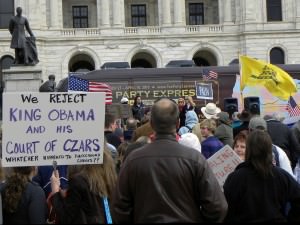Possible Effects of the U.S. Midterm Elections
Could The Tea Party Cause Hangovers?
Luis Fernando Arce
Staff Writer, Co-online Editor
THE ELECTIONS
As most of you have probably already heard, the U.S. midterm elections took place a few weeks ago, on November 2, 2010. The mid-terms happen after the first two years of the new administration’s inception, and all 435 seats in the House of Representatives and 37 of the 100 seats in the Senate are up for grabs; 36 States also elect their governors.
As its name indicates, the elections are somewhat of a mid-way assessment of the current administration’s performance by measuring the American people’s satisfaction through their voting (either they like the current administration, and vote most of that party’s members back in, or vote the opposition’s members in).
The House of Representatives in the U.S. is now run by Republicans as they won back 64 seats from the Democrats, giving them a majority of 239 seats. However, the Democrats held on to 19 of the 37 seats in the Senate, showing that although the Democrats still technically hold a small majority, the Republicans made huge gains that could put them over the top in the 2012 Presidential Elections.
The immediate and simple explanation of the effects of these results is that American politics can expect to see a lot of stagnation, at the very least for the next two years until the next presidential election. Scotty Greenwood, Executive Director of the Canadian-American Business Council sees this as the perfect formula which “coupled with the president’s veto, points toward political gridlock in which neither agenda is likely to prevail.”
However, the significance of these elections and what they mean for the future does not so much rest on the results themselves, but rather on what the emergence of the Tea Party means for conservative politics in America.































Share the post "Possible Effects of the U.S. Midterm Elections"